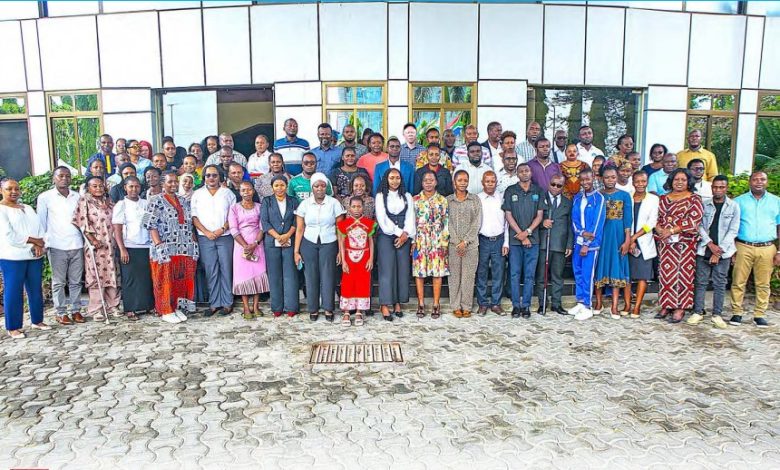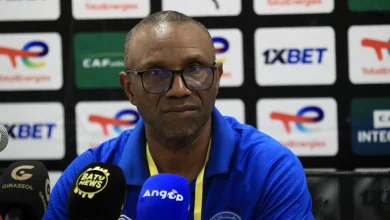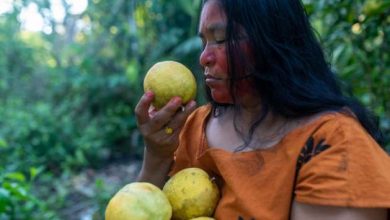HakiElimu advances gender equality, social inclusion efforts

NELSON Mandela once said, “Education is the most powerful weapon which you can use to change the world.” His words extend far beyond the walls of classrooms and lecture halls. Education, in its broadest sense, includes building awareness, shaping mindsets and empowering individuals to participate fully in the social, political and economic life of their country.
When communities embrace inclusive development ensuring that women, men, youth, persons with disabilities, and other marginalised groups are actively engaged in decision-making—the entire nation becomes stronger, fairer and more resilient.
Across the country, the government continues to champion policies and initiatives designed to uplift every citizen. The principle of “leaving no one behind” lies at the heart of these efforts.
Through targeted programnes, strategic partnerships and extensive com- munity outreach, institutions are working to ensure that all people—regardless of gen- der, age, ability or socio-economic background—receive equal access to opportunities and can contribute meaning- fully to national progress.
When diversity is valued and every voice is heard, societies are better prepared to over- come both present and future challenges. It is within this wider mission of empowerment that a three-day seminar was organ- ised in Dodoma.
The event brought together government officials, civil society actors, education professionals and community leaders from different regions.
Their shared purpose was to explore practical approaches to strengthening inclusion at the grassroots level. The central theme of the seminar revolved around Gender Equality and Social Inclusion (GESI), examined through the lens of social ac- countability.
The training was organised by HakiElimu Tanza- nia under the SAUTI ZETU project. Its primary objective was to promote gender main- streaming and ensure that is- sues of equality and inclusion are integrated across all pil- lars of community development.
Participants included representatives from several partner organisations: Child Support Tanzania (CST), Sawa Wanawake Tanzania (SAWA), the Organisation for Community Development (OCODE), the Mtwara Non-Governmental Organisation Network (MTWAN- GONET), Save Education and Future Development Trust, and local government authorities from Bagamoyo, Mtwara, Ifakara, Mbeya City and Mvomero Districts.
Head teachers, community development officers and education officers also formed a significant part of the participant group.
Throughout the seminar, attendees discussed how communities can strengthen their collective capacity by ensuring that marginalised groups especially women, youth and persons with dis- abilities are fully integrated into planning and decision making processes. Participants agreed that true inclusion is achieved not through visibility alone but through active engagement.
When every group has a seat at the table, their perspectives, skills and lived experiences enrich the quality of solutions and help drive sustainable development.
The conversations repeatedly emphasised that meaningful inclusion requires deliberate action, sustained collabora- tion and continuous institu- tional support.
Ms Nuria Mshare, Gender and Development Specialist at HakiElimu, explained that the central goal of the training was to equip stakeholders with the knowledge and skills necessary to implement development initiatives that uphold principles of gender equality.
She highlighted that institutions must prioritise groups often overlooked such as women, girls, persons with disabilities and residents of underserved areas—when planning and executing their budgets.
According to Ms Mshare, many organisations still struggle to translate gender principles into their day-today planning, budgeting and implementation processes. The role of gender specialists, she explained, is therefore critical in helping institutions understand what gender-responsive development truly entails and how to apply it consistently.
She added that emphasising inclusivity broadens stakeholders’ understanding of who requires support and why. Development initiatives, she noted, must avoid unintentionally reinforcing inequality and instead HakiElimu advances gender equality, social inclusion efforts work actively to correct it.
Ms Mshare also pointed out that reinforcing institutional accountability is essential. When organisations recognise their responsibility to allocate resources fairly and include marginalised groups, they be- gin to shift internal systems and practices that may have historically overlooked these populations.
This mindset aligns directly with the goals of the SAUTI ZETU project, which aims to ensure that no group is left behind in community development.
Ms Mshare concluded that such training fosters long-term behavioural and institutional change. By equipping participants to become ambassadors of gender equality within their respective sectors, the initiative strengthens the likeli- hood that inclusive practices will influence future policies and community programmes. Grounding the training in real societal needs ensures that the knowledge gained will lead to meaningful, measurable ac- tion.
Dr Hildergade Mehrab, Head of the Projects and Advocacy Department at Child Support Tanzania (CST), echoed similar sentiments. She described the training as an important opportunity for building a shared understanding of gender-responsive development among stakeholders.
According to Dr Mehrab, many institutions face challenges when attempting to translate gender policies into practical action. Capacity building sessions like this one are therefore essential for bridging the gap between poli- cy and implementation.
She emphasised that true advocacy requires a clear understanding of the different barriers faced by women, girls, persons with disabilities and other marginalised com- munities. At CST, she said, the commitment to ensuring that all development initiatives are inclusive remains a core institutional priority.
Dr Mehrab further explained that meaningful, lasting change depends on strong collaboration between government institutions, civil society organisations and community actors.
By equipping participants with gender-sensitive approaches and practical tools, the training will contribute to more equitable service delivery nationwide and yield better development outcomes for vulnerable populations. Renatus Kisenha, Head Teacher of Nia Njema Primary School in Bagamoyo Town Council, emphasised the training’s importance for strengthening inclusive education.
He noted that many teachers still lack sufficient knowledge and practical skills to support learners with diverse needs. Consequently, pupils with disabilities often encounter barriers that harm their participation, confidence and academic performance.
The seminar provided valuable insights into how schools can create supportive environments that respect and respond to the physical, emotional and academic challenges different learners face. Inclusive education, Kisenha emphasised, is not solely about infrastructure it also requires teachers’ commitment to treat every child with dignity and fairness.
Mr Kisenha added that with the knowledge gained, schools can develop stronger systems to identify learners who require additional sup- port and ensure they are not left behind.
He expressed hope that similar training programs will be expanded across the country to help more teachers strengthen inclusive learning in their classrooms. Leonora Ngowi, Monitoring and Evaluation Officer at Sawa Women Tanzania, also highlighted the seminar’s value.
She explained that the training directly enhances the organisation’s mission to de- liver inclusive environmental sanitation services in homes, schools and health facilities. Gender and disability consid- erations play a crucial role in sanitation access, yet they are frequently overlooked in the planning of such services.
Ms Ngowi noted that understanding gender dynamics helps organisations design sanitation facilities that are safe, accessible and dignified for all users—including women, girls and persons with disabilities. The knowledge gained will allow Sawa Women Tanzania to implement stronger gender responsive and disability inclusive strategies in future projects.
She added that such learning is vital for building community systems that protect dignity, promote public health and uphold the rights of marginalised groups.
The insights from the training will support more equitable service delivery and improve the impact of sanitation interventions across multiple communities. Overall, the seminar rein- forced a shared understanding that national development can flourish only when every individual regardless of gender, age, background or ability—is empowered to participate fully in society.
By equipping community leaders, educators and development practitioners with practical tools to inte- grate gender equality and so- cial inclusion into their daily work, the training strength- ened collective accountability and commitment.
The voices of participants underscored a unified message: Inclusion is not optional it is essential for sustainable progress. With continued collaboration and purposeful action, these ef- forts will help build a more just, equitable and resilient so- ciety where every citizen has the opportunity to thrive.





